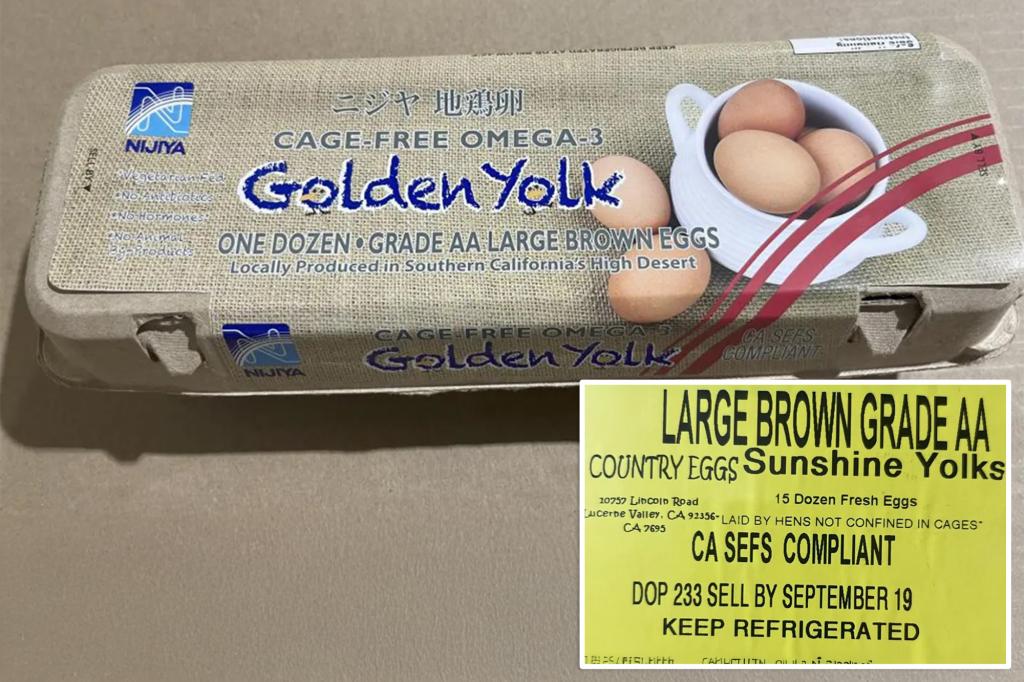FDA Announces Egg Recall Amid Salmonella Outbreak: What You Need to Know
In a move to protect public health, the US Food and Drug Administration (FDA) announced on Thursday a significant recall of eggs linked to a salmonella outbreak that has already affected dozens of consumers across California and Nevada. The recall targets large brown cage-free Sunshine Yolks distributed by Country Eggs, LLC of Lucerne Valley, California. According to the FDA, at least 92 illness cases have been reported in connection with these contaminated eggs, though thankfully no deaths have occurred. This recall serves as a stark reminder of the importance of food safety vigilance and the potential dangers of foodborne illnesses in everyday products we bring into our homes.
The specific eggs under recall were sold in 12 counties under three brand names: Nagatoshi Produce, Mizuho, and Nijiya Markets. Consumers should check their refrigerators for egg cartons with sell-by dates ranging from July 1, 2025, through September 16, 2025. Each recalled carton bears the distinctive printed code “No. CA 7695.” The FDA explained that “the potential for contamination was noted after being brought to our attention by the FDA and other authorities that our product may contain the presence of salmonella.” In response, Country Eggs has suspended production while investigations continue to determine the exact source of contamination. This precautionary measure demonstrates the seriousness with which food safety concerns are being addressed in this case.
For consumers who have purchased these eggs, health officials strongly recommend either returning them to the place of purchase for a full refund or safely disposing of them to prevent potential illness. This recall highlights the critical importance of paying attention to food safety announcements and checking pantry items against recall notices. Salmonella poisoning presents serious health risks, with symptoms including diarrhea, nausea, stomach cramps, and fever that can begin anywhere from hours to a week after consuming contaminated food. The bacteria can be particularly dangerous for vulnerable populations, including young children, elderly individuals, and those with compromised immune systems, for whom the infection could potentially be fatal.
The egg recall process exemplifies how our food safety system works to protect consumers once a potential danger is identified. When patterns of illness emerge, public health officials trace back through the food supply chain to identify potential sources of contamination. In this case, that detective work led to Country Eggs’ Sunshine Yolks products. The company’s cooperation with regulatory authorities demonstrates the shared responsibility between government oversight and industry accountability in maintaining a safe food supply. This transparent approach to food safety issues helps maintain consumer confidence while addressing potential health threats before they can spread further.
Behind the clinical language of the recall notice lies a very human story—families experiencing the discomfort and potential danger of foodborne illness, small businesses facing the economic and reputational impact of a recall, and public health officials racing to connect the dots between reported illnesses and their source. Each of the 92 illness cases represents a person who suffered physical symptoms and disruption to their daily life. For immunocompromised individuals, elderly people, or parents of young children, a salmonella infection isn’t just an inconvenience but a potentially serious medical emergency. The recall system, while sometimes seeming bureaucratic, serves the very human purpose of preventing more stories of illness from unfolding.
This egg recall serves as a timely reminder that food safety remains an ongoing challenge even in our advanced food system. Eggs, like many agricultural products, can become contaminated at various points from farm to table. While modern safety protocols have dramatically reduced the incidence of foodborne illness, complete elimination of risk remains elusive. For consumers, this means continuing to practice good food safety habits at home—properly refrigerating eggs, cooking them thoroughly, and washing hands and surfaces that contact raw eggs. For industry and regulators, each outbreak provides data to strengthen prevention measures. The collaboration between Country Eggs and the FDA in identifying, announcing, and addressing this contamination demonstrates how our food safety system continually works to protect public health, learning and adapting with each new challenge that emerges.


